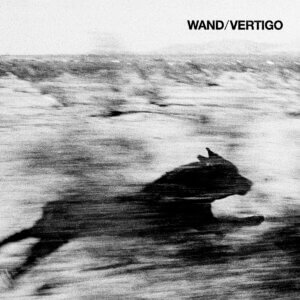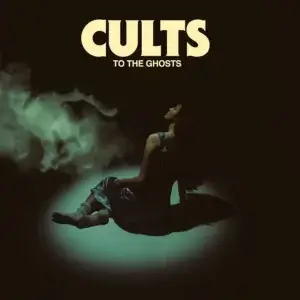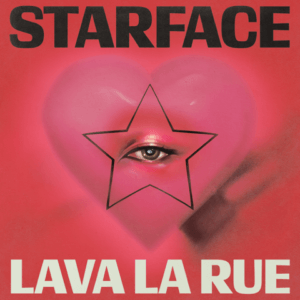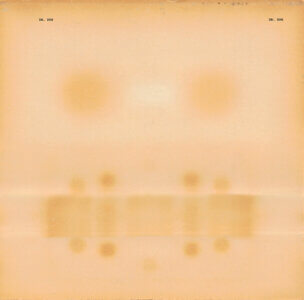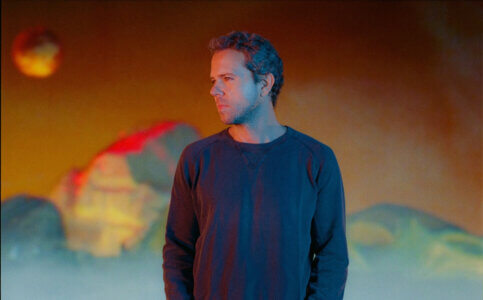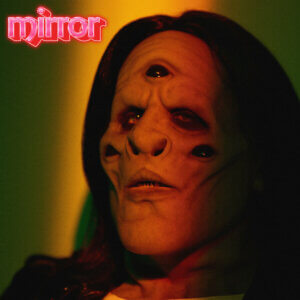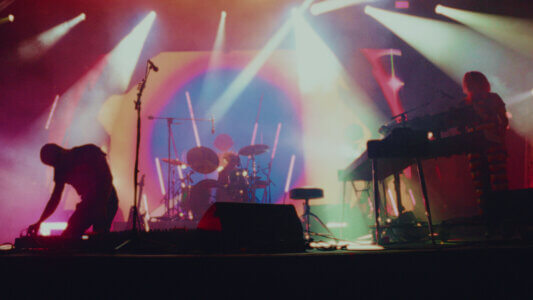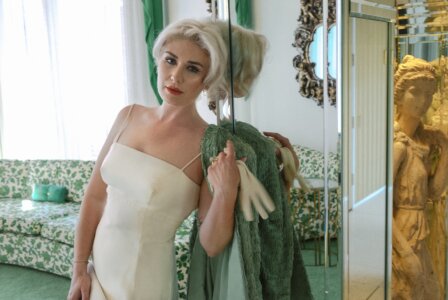Morgan Kibby Explores New Connections As Sue Clayton
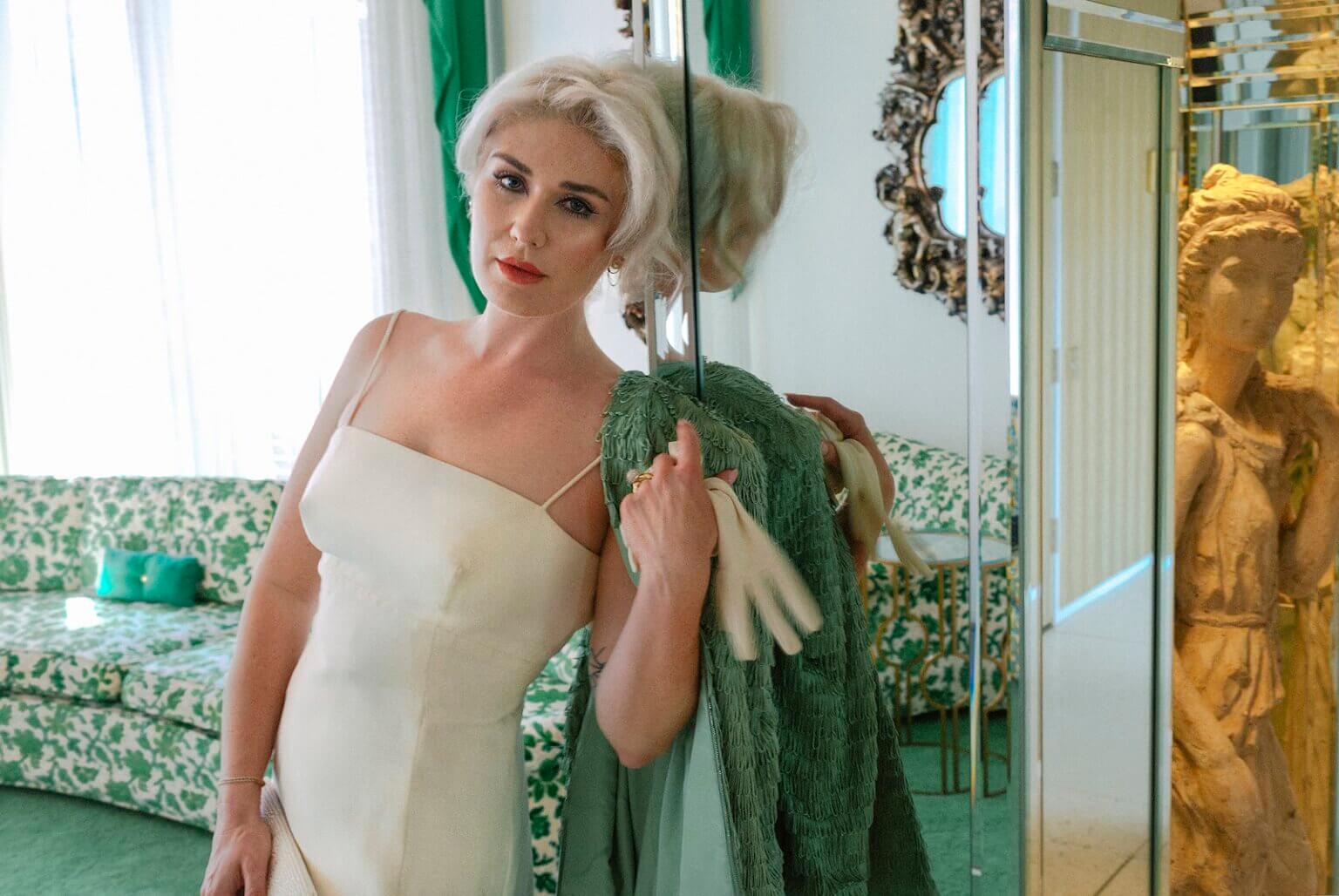
Morgan Kibby’s new solo album, Rookie, is the latest addition to a mind-boggling musical CV that includes time spent in synth outfit M83, collaborations with the likes of Lady Gaga and Harry Styles, and various film and tv scores. It’s been a while since the L.A.-based musician had put out a project of her own, though.
Kibby had previously released solo music as the more electronics-geared White Sea, whose last album had come out in 2017. Rookie, meanwhile, arrives as a country-folk daydream sung from the perspective of the fictional Sue Clayton. Kibby wrote much of the album while crashing at her parents’ Palm Springs guest house, before working them out in a recording studio with americana-lovin’ producer Butch Walker. In-story, Sue’s strumming these songs out from a roadside motel, deep in the California desert. Somewhere in between, their experiences entwine.
Accompanied by a soul-glowing bass bump and dusty acoustic strums, Rookie’s introductory “Runaway Bride” finds its protagonist broken-spirited and bolting from her wedding. From there, the record offers a series of snapshots of Sue either contemplating love through middle-age (“OMG”), looking for signs in a starlit desert skyline (“Moonsong”), or experiencing poignant, if momentary, connections at a call center (“Loveline”). With respect to the score work Kibby’s crafted for episodes of The Watcher, American Horror Story, and most recently The Power, the framing of Rookie’s hero’s journey would similarly make for an emotionally action-packed piece of cinema.
“I’d like to say Rookie is kind of like when you watch a Netflix movie — it’s based in reality, but dramatized for screen,” Kibby tells Northern Transmissions, ultimately calling Sue “a skin that allowed me to be more vulnerable.”
She continues of her character’s narrative arc: “We’re starting off with a woman who’s so full of hope. She’s not getting married, [something] she was supposed to do. You slowly see her journey [towards becoming] a full-blown woman who’s shaking hands with whatever the future holds. I think that that is really powerful for me.”
Speaking with Northern Transmissions, Kibby further details her time as Sue Clayton, and how both figures have found profundity in the kindness of strangers.
This interview has been edited and condensed.
Northern Transmissions: Rookie is somewhat of a curious album title, considering your work as White Sea, your time in M83, the film and tv score work, and also your broader work as a songwriter. On the other hand, you did create the Sue Clayton character for this album. How did you go about starting fresh as Sue, and why?
MORGAN KIBBY: You know, White Sea was always an exploration, [but] I never found myself, if I’m being completely honest. I’m going to give myself enough credit — I know what I’m doing on a base level —but in terms of really owning and committing to a vision, I don’t think I ever found that with previous projects. I’m a late bloomer; it’s fine.
After taking a seven-year sabbatical from writing for myself, I wanted to dig back into the core of what I bring to the table: lyrics, songwriting, storytelling, and my voice. [Also,] my father’s from Alabama; I grew up listening to bluegrass, classic americana, and country. That’s why I decide to create Sue — Sue is my mother’s middle name; Clayton is my father’s middle name. There’s a lot of synchronicities. [Sue] was a skin I could put on that felt aligned with where I was in my life.
NT: Was this the first project where you fully threw yourself into a fictional role?
KIBBY: Consciously, yes, [but with] White Sea, there was a reason why it wasn’t called “Morgan Kibby.” I think — in a very flailing, in-your-20s way — White Sea was like, “What am I doing? What am I creating?” Sue was consciously coming [towards] the idea of persona, a vehicle for finding the best and most honest ways of expressing myself.
NT: What can you say about working with a different kind of sonic palette than your earlier synth-styled work? Rookie has those tremolo-dusted guitar treatments; there’s a Canyon country feel to something like “Runaway Bride”…
KIBBY: Strangely enough, in think it’s intrinsic. [Despite] being in electronic music for all those years, [country is] the music that I grew up with. It’s [just] the warmth of ‘70s recordings. When Butch and I started working together, I was consciously putting together a playlist of references. It wasn’t a million songs; it was like 20-25 really specific tracks that I felt spoke to either a palette, a narrative, or an energy. So, we really pulled from that. I was getting really specific about what the [musical] references were, [while] trying to figure out, “Where does Sue come from? Where has she lived? What’s her story?” I think of this as a soundtrack to this woman’s life, essentially.
NT: How about the change of scenery involved with this project? White Sea was named after the sea off the coast of Russia, right?
KIBBY: When I was looking for a band name back then, I looked up what “Morgan” meant in a baby-name dictionary. It said, “A woman that comes from a White Sea.” Perfect! That’s why I chose that, modern politics notwithstanding.
NT: This Sue Clayton record, by contrast, is distinctly Californian, with references to Palm Springs and all that. How did the California landscape impact the record?
KIBBY: My life had fallen apart; it was the middle of COVID. [But] I am lucky enough that my parents live in Palm Springs. They have a beautiful home with a guest house that they had built for their children, when they come to visit. I said, “Mom, Dad, I’m coming home and I’m going to stay with you for a while as I get things sorted.”
I [felt] very alone. I was separated from my partner of ten years. It was a big life change. So, I was alone with my thoughts for the first time in forever. [As I was] processing everything, I would wake up, and my god the sunrises in the desert…the colours are different. The air is different. There’s something about the expansiveness of the desert that doesn’t answer you, but it invites you [in].
NT: Can we get into the specificity you bring to the lyrics on this record? “Moonsong,” for instance, features that nice, evocative line where Sue is staring up at the skies, hoping to carve someone out of constellation shapes. A little later on, there’s the references to Cupid’s Bow. How deep was your interest in astronomy prior to writing this track?
KIBBY: Can I tell you a secret? When people at a party ask me what I do, and I know that I’m never going to talk to them again, I tell them I’m an astronomer.
NT: Do you have the facts to back that up?
KIBBY: No! When they say, “Ooh…tell me more,” I’m like, “I don’t really want to talk about work tonight” [laughs]. [But], yes…a deep love of astronomy. Orion’s Belt! As a child, I went backpacking with my father every summer. It informed my love of nature, and my love of the silence of nature.
I just remember having these moments [while staying with my parents]. I was swimming in a pool in the middle of the night. It was so quiet — crickets and little bunnies hopping around — and I was looking at these constellations. Being so far from the person that I loved, both physically and emotionally, and not knowing a way for us to come back to each other….[“Moonsong”] came from there. It’s like cloud hunting, a little bit, where you see shapes in clouds. That’s how I felt about constellations at the time.
NT: The chorus to “Desert Caviar” revolves around Sue enjoying the scent of an expensive, cherry tomato-scented candle…
KIBBY: I’ve got an orange-scented one [now], but the tomato one is worth its weight in gold. I don’t buy them often because they’re very expensive. I know that a lot of women would understand this, [but] it’s a slice of life lyric for a larger sentiment, which is that we save the best things to share with other people. Sometimes we don’t get to do that. So, how do we honour ourselves? By burning the fucking candle, man!
NT: At the end of Rookie’s “Loveline,” there’s an audioplay that finds Sue, who has just taken on a job at this call centre, speaking with Glen — a lonely character, we’ll say. You’re taking on the role of Sue for this record, but is the character in the fiction themselves assuming a role? You might not want to drop your real name while working at a call centre, for safety reasons…
KIBBY: To me, that was honouring this idea of ‘70s kitsch. I wanted to do something that was lighter, and not so steeped in emotional mythology. When Butch and I were talking about the end of the song, it was like, “What if [Glen] calls, and all of a sudden they hear each other’s pain, each other’s humanness, and how alone they both were?” That’s why they connect. It has nothing to do with eroticism or sex, because we’ve had that in the first three minutes of the song. This song ends with a moment of tenderness between two people who will never really meet each other. Yet [there are] those moments in life where you cry in the arms of a stranger at party. You never speak to them again, but it’s one of the most intimate moments you’ll remember in your life.
NT: You’ve developed a different level of intimacy with the character of Sue — someone that you’ve just met, in a sense. What did writing as Sue reveal to you about yourself?
KIBBY: It revealed that tenderness is power. There is a whole swathe of women my age who don’t get spoken to; we get lost in the shuffle. We’re no longer the ingénues, but we’re not the crones, either. Sue allowed me to explore what this transitional moment in life looks and feels like — the pain of feeling so alone, but understanding that that’s also where you start to find power and feel alive.
NT: Has the experience of Sue informed the projects you’ve been working on since?
KIBBY: She doesn’t really play any part in my composition work, in all fairness, because it’s a completely different scope of work. [Rookie] was a real lightning bolt moment for me, of rediscovering how to make music just for myself, as opposed to working in service of somebody else’s vision. It was the first time that I’d made work that felt like it was honest and forthright, and right.
NT: Would you jump into Sue’s skin again?
KIBBY: Sue is somebody I’d like to keep exploring. I don’t know where she goes next, though. This record was such a crystalized moment in time. There was no expectation for making this record, which is a really pure space to be making music from. I’m not afforded that very often. I think as long as it stays that way, then she can go anywhere.
order Rookie by Sue Clayton HERE
Latest Reviews
Tracks
Advertisement
Looking for something new to listen to?
Sign up to our all-new newsletter for top-notch reviews, news, videos and playlists.
